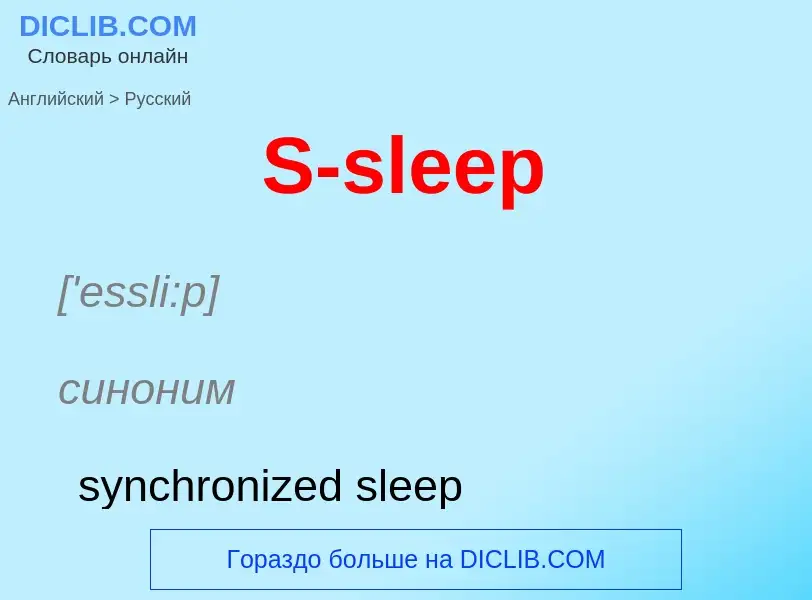Traduzione e analisi delle parole tramite l'intelligenza artificiale ChatGPT
In questa pagina puoi ottenere un'analisi dettagliata di una parola o frase, prodotta utilizzando la migliore tecnologia di intelligenza artificiale fino ad oggi:
- come viene usata la parola
- frequenza di utilizzo
- è usato più spesso nel discorso orale o scritto
- opzioni di traduzione delle parole
- esempi di utilizzo (varie frasi con traduzione)
- etimologia
S-sleep - traduzione in Inglese
['essli:p]
синоним
медицина
апноэ во сне
общая лексика
медленноволновой сон
Definizione
Wikipedia
Sleep hygiene is a behavioral and environmental practice developed in the late 1970s as a method to help people with mild to moderate insomnia. Clinicians assess the sleep hygiene of people with insomnia and other conditions, such as depression, and offer recommendations based on the assessment. Sleep hygiene recommendations include: establishing a regular sleep schedule; using naps with care; not exercising physically or mentally too close to bedtime; limiting worry; limiting exposure to light in the hours before sleep; getting out of bed if sleep does not come; not using bed for anything but sleep and sex; avoiding alcohol as well as nicotine, caffeine, and other stimulants in the hours before bedtime; and having a peaceful, comfortable and dark sleep environment. However, as of 2021, the empirical evidence for the effectiveness of sleep hygiene is "limited and inconclusive" for the general population and for the treatment of insomnia, despite being the oldest treatment for insomnia. A systematic review by the AASM concluded that clinicians should not prescribe sleep hygiene for insomnia due to the evidence of absence of its efficacy and potential delaying of adequate treatment, recommending instead that effective therapies such as CBT-i should be preferred.









